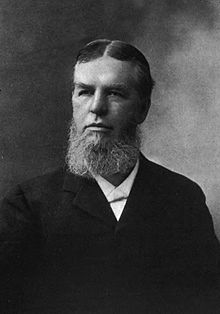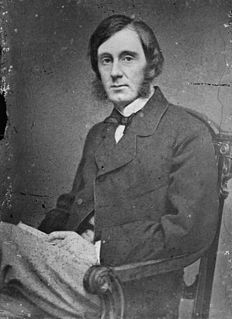
William Ellery Channing was the foremost Unitarian preacher in the United States in the early nineteenth century and, along with Andrews Norton (1786–1853), one of Unitarianism's leading theologians. Channing was known for his articulate and impassioned sermons and public speeches, and as a prominent thinker in the liberal theology of the day. His religion and thought were among the chief influences on the New England Transcendentalists although he never countenanced their views, which he saw as extreme. He espoused, especially in his "Baltimore Sermon" of May 5, 1819, given at the ordination of the theologian and educator Jared Sparks (1789–1866) as the first minister of the newly organized First Independent Church of Baltimore, the principles and tenets of the developing philosophy and theology of Unitarianism, leading to the organization in 1825 of the first Unitarian denomination in America and the later developments and mergers between Unitarians and Universalists, resulting finally in the Unitarian Universalist Association of America in 1961.

Octavius Brooks Frothingham, was an American clergyman and author.

Phillips Brooks was an American Episcopal clergyman and author, long the Rector of Boston's Trinity Church and briefly Bishop of Massachusetts, and particularly remembered as lyricist of the Christmas hymn, "O Little Town of Bethlehem".
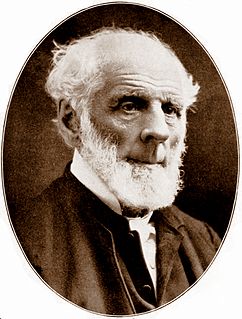
FredericDan Huntington was an American clergyman and the first Protestant Episcopal bishop of the Episcopal Diocese of Central New York.
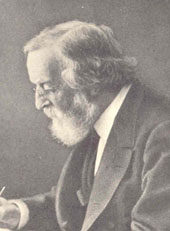
James Freeman Clarke was an American theologian and author.

Minot Judson Savage was an American Unitarian minister, psychical researcher and author.

Henry Whitney Bellows was an American clergyman, and the planner and president of the United States Sanitary Commission, the leading soldiers' aid society, during the American Civil War. Under his leadership, the USSC became the major source of spiritual and physical aid for wounded Union soldiers.

James Walker was a Unitarian minister, professor, and President of Harvard College from February 10, 1853, to January 26, 1860.
Samuel Atkins Eliot II was an American Unitarian minister. In 1898 the American Unitarian Association elected him secretary but in 1900 the position was redesignated as president and Eliot served in that office from inception to 1927, significantly expanding the association's activities and consolidating denominational power in its administration.
John Weiss was an American author and clergyman, an advocate of women's rights, as well as a noted abolitionist.

The "Divinity School Address" is the common name for the speech Ralph Waldo Emerson gave to the graduating class of Harvard Divinity School on July 15, 1838.
Nathaniel Thayer was a congregational Unitarian minister.

John Gorham Palfrey was an American clergyman and historian who served as a U.S. Representative from Massachusetts. A Unitarian minister, he played a leading role in the early history of Harvard Divinity School, and he later became involved in politics as a State Representative and U.S. Congressman.

Nathaniel Langdon Frothingham was an American Unitarian minister and pastor of the First Church of Boston from 1815 to 1850. Frothingham was opposed to Theodore Parker and the interjection of transcendentalism into the church. He also wrote sermons, hymns, and poetry.
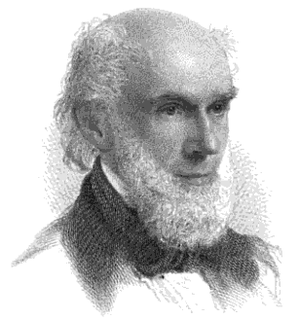
Ezra Stiles Gannett (1801–1871) was a unitarian minister in Boston, Massachusetts.
Ephraim Peabody was a Unitarian clergyman from the United States.
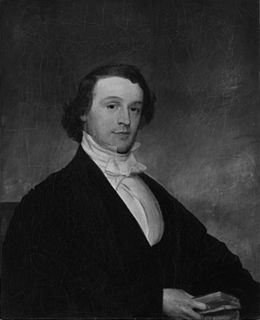
George Edward Ellis was a Unitarian clergyman and historian.
George Washington Hosmer was a United States educator. He was president of Antioch College from 1862 to 1872.

Charles Gordon Ames was a United States Unitarian clergyman, editor and lecturer.

Encyclopedia Americana is one of the largest general encyclopedias in the English language. Following the acquisition of Grolier in 2000, the encyclopedia has been produced by Scholastic.

James Grant Wilson was an American editor, author, bookseller and publisher, who founded the Chicago Record in 1857, the first literary paper in that region. During the American Civil War, he served as a colonel in the Union Army. In recognition of his service, in 1867, he was nominated and confirmed for appointment as a brevet brigadier general of volunteers to rank from March 13, 1865. He settled in New York, where he edited biographies and histories, was a public speaker, and served as president of the Society of American Authors and the New York Genealogical and Biographical Society.

John Fiske was an American philosopher and historian.
